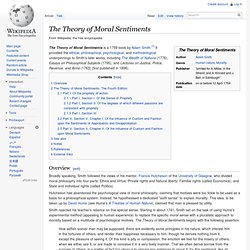

Martha Nussbaum. Martha Craven Nussbaum (/ˈnʊsbaʊm/; born May 6, 1947) is an American philosopher and the current Ernst Freund Distinguished Service Professor of Law and Ethics at the University of Chicago, a chair that includes appointments in the philosophy department and the law school.

She has a particular interest in ancient Greek and Roman philosophy, political philosophy, feminism, and ethics, including animal rights. She also holds associate appointments in classics, divinity and political science, is a member of the Committee on Southern Asian Studies, and a board member of the Human Rights Program. She previously taught at Harvard and Brown.[1] Nussbaum is the author or editor of a number of books, including The Fragility of Goodness (1986), Sex and Social Justice (1998), The Sleep of Reason (2002), Hiding From Humanity: Disgust, Shame, and the Law (2004), and Frontiers of Justice: Disability, Nationality, Species Membership (2006).
Life and career[edit] Major works[edit] Awards and honors[edit] Martha Craven Nussbaum. Un article de Wikipédia, l'encyclopédie libre.

Martha Nussbaum Martha Nussbaum en 2008 Martha Nussbaum, née Martha Craven le 6 mai 1947[1], est une philosophe américaine qui s'intéresse particulièrement à la philosophie antique, au droit et à l'éthique. Aperçu historique[modifier | modifier le code] Elle est née à New York le 6 mai 1947. Carrière universitaire[modifier | modifier le code] Pendant les années 1980, Nussbaum a commencé à collaborer avec l'économiste Amartya Sen sur les enjeux du développement économique et de l'éthique. Depuis 1995, Nussbaum est professeure de droit et d'éthique à la faculté de droit de l'université de Chicago. Par ailleurs, elle s'est opposée à des gens aussi différents que Judith Butler et Allan Bloom à qui elle reprochait d'être des mandarins isolant la philosophie des problématiques politiques contemporaines.
Œuvres[modifier | modifier le code] en anglais[modifier | modifier le code] en français[modifier | modifier le code] The Theory of Moral Sentiments. The Theory of Moral Sentiments is a 1759 book by Adam Smith.[1] It provided the ethical, philosophical, psychological, and methodological underpinnings to Smith's later works, including The Wealth of Nations (1776), Essays on Philosophical Subjects (1795), and Lectures on Justice, Police, Revenue, and Arms (1763) (first published in 1896).

Overview[edit] Hutcheson had abandoned the psychological view of moral philosophy, claiming that motives were too fickle to be used as a basis for a philosophical system. Instead, he hypothesised a dedicated "sixth sense" to explain morality. This idea, to be taken up by David Hume (see Hume's A Treatise of Human Nature), claimed that man is pleased by utility. Smith rejected his teacher's reliance on this special sense. Smith departed from the "moral sense" tradition of Shaftesbury, Hutcheson, and Hume, as the principle of sympathy takes the place of that organ.
Sympathy arose from an innate desire to identify with the emotions of others. Théorie des sentiments moraux. Un article de Wikipédia, l'encyclopédie libre.

La Théorie des sentiments moraux, initialement publiée en 1759, est l'un des plus importants travaux d'Adam Smith sur la théorie du capitalisme. On y trouve les principes psychologiques, philosophiques, et méthodologiques qui sous-tendent ses œuvres ultérieures, les Lectures on Justice, Police, Revenue, and Arms ("Conférences sur la justice, la police, les recettes publiques et les armes", 1763), la Richesse des nations (1776), les Essays on Philosophical Subjects ("Essais sur des sujets philosophiques", 1795).
Argument[modifier | modifier le code] Plus précisément, Smith distingue, au sein de la morale : les catégories qui touchent à la nature de la moralité : la propriété, la prudence, la générosité, la licence ;les catégories qui touchent aux mobiles de la moralité : l'amour-propre, la raison, les sentiments. Annexes[modifier | modifier le code] Bibliographie[modifier | modifier le code] Liens externes[modifier | modifier le code]